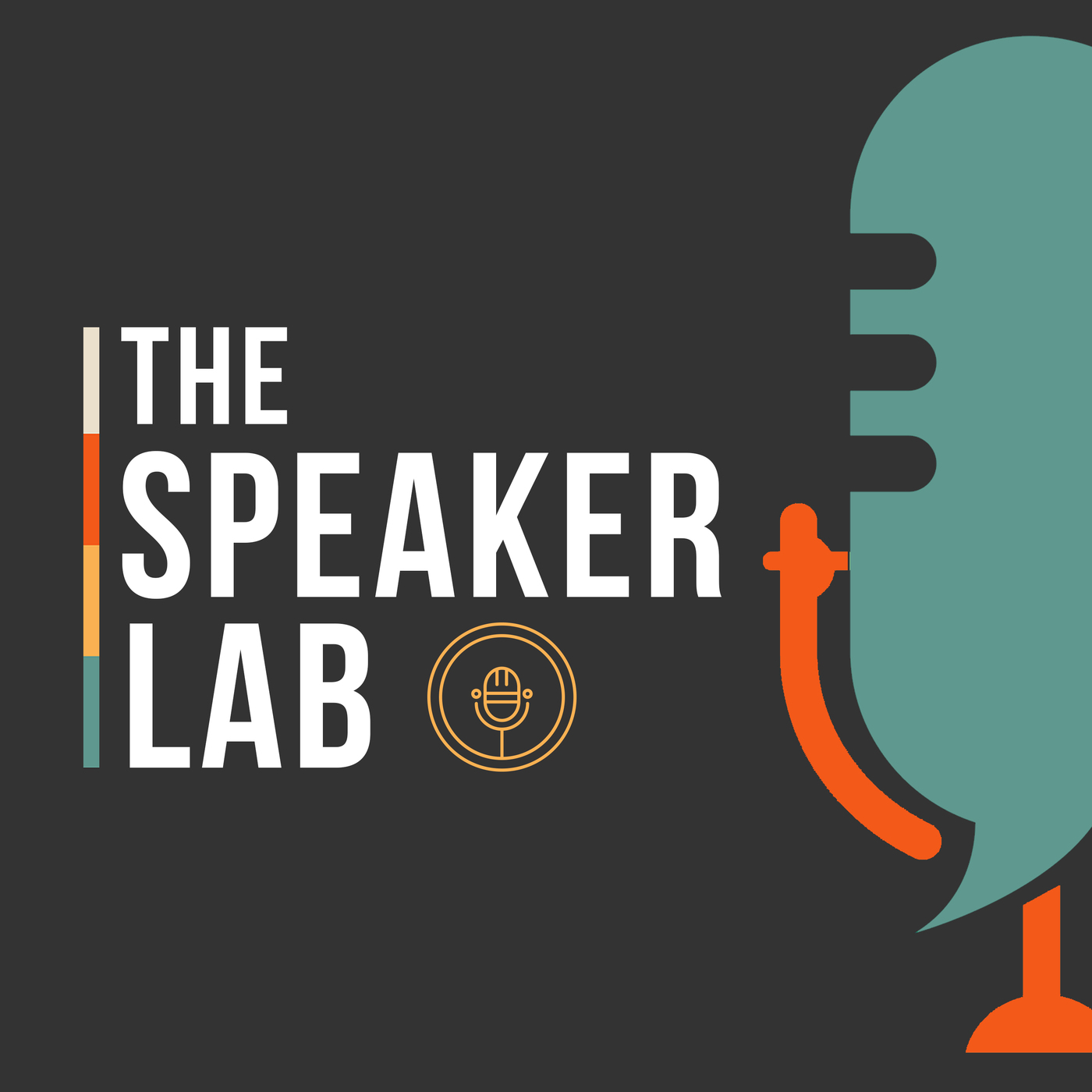
Delay the Binge™ with Pam Dwyer
Formerly The Plus One Theory Podcast, this show has evolved into Delay the Binge™, where we explore the small, powerful shifts that help you pause with purpose, break painful patterns, and reclaim who you are.
Delay the Binge™ with Pam Dwyer
Episode 17: The Hidden Stories Behind Difficult People: Finding Compassion in Chaos
Let us know if you would like to be our guest!
The Plus One Theory applies powerful perspective shifts to dealing with difficult people by looking beneath surface behaviors to understand hidden pain points and responding with intentional compassion. This episode explores how challenging behaviors often stem from past wounds, and how giving others a voice can transform relationships.
• The Plus One Theory centers on adding one extra step of intentional kindness or effort
• Difficult behaviors often mask deeper issues like past rejection, trauma, or current struggles
• Personal story of a volatile family friend who cut contact without explanation
• Understanding someone's behavior isn't about you helps release unnecessary guilt
• Children (and adults) often act out when they feel voiceless
• Powerful example of grandson's emotional breakthrough after being asked what was really bothering him
• Four-step approach: pause before labeling, hold compassion without enabling toxicity, focus on your response, ask what's behind their reaction
• We've all been "the difficult one" at times in our lives
Share your Plus One Theory stories for my upcoming book by visiting PamDwyer.com and reaching out through the contact page.
This is Delay the Binge™, formerly The Plus One Theory Podcast
Delay the Binge™ is a trademark of TPKK Concepts LLC.
© 2025 Pam Dwyer. All rights reserved.
Learn more: DelayTheBinge.com
Storytelling that transforms. Healing that lasts.
From bestselling author Pam Dwyer (PJ Hamilton).
Books + speaking: PamDwyer.com
Hey, there, it's Pam Dwyer, and welcome back to the Plus One Theory podcast, where we talk about real life, real growth and those small steps that lead to big change. If this is your first time here, the plus one theory is simple. It's about doing your best and then just adding one more small, intentional step, that little extra kindness, grace or effort, it can change everything. Quick disclaimer I'm not a therapist or doctor thing. Quick disclaimer I'm not a therapist or doctor. I'm just someone who's lived through a lot, healed through even more and learned to use my story to help others grow. And today's episode is going to be a little deeper. We're talking about something that's tough for everyone dealing with difficult people. But we're not just going to talk about their behavior. We're going to talk about what's behind it and how we can better respond to it using the plus one mindset. What's interesting about difficult people is that what makes them difficult isn't just their attitude in the meeting or the passive, passive-aggressive emails, or the fact that they make everything harder than it needs to be. What makes them difficult is what's happening behind the scenes the colleague who shoots down every idea maybe they were told one too many times that their ideas didn't matter. The boss who micromanages every single thing didn't matter the boss who micromanages every single thing. Maybe they grew up in chaos and control is the only way they know how to stay safe. That person who always seems like they're one second away from exploding. Maybe they're taking care of a sick parent or drowning in debt, or dealing with a loss no one knows about and guess what? You've got your own behind the scenes too. That's why, when we stop labeling people as difficult and start recognizing them as human, everything starts to shift. Those of you who might remember Mr Rogers he once said what's mentionable is manageable, and I love that, because a lot of difficult behavior that's unprocessed pain trying to speak. It doesn't excuse our poor behavior, but it does give us a framework to understand where it's coming from. We don't always know what's beneath the surface of someone's actions, but if we pause long enough to consider it, we stop feeding into the chaos and start shifting the energy.
Speaker 1:Here's a story I want to share with you. I had a let's call him a family friend who was a huge part of my life growing up. He gave me the love and support I needed when I didn't always have it elsewhere, but as we got older, he became more unstable, especially with all the alcohol. It was heartbreaking. I couldn't even bring my kids around him anymore. He was so volatile, loud and unpredictable. And then one day, out of nowhere, he stopped talking to me altogether. No explanation, no goodbye. I tried to reach out, I tried to bridge that gap, but he made it clear he didn't want anything to do with me. And it hurt. It still hurts. But here's what I've learned I don't have to carry guilt for something I didn't cause. I still love him, I always will, and if he ever needed me, I'd be there. But his pain, well, isn't mine to hold. What happened was never really about me, and letting go of that allowed me to move forward with peace.
Speaker 1:And look, I'm not perfect either. None of us are. We've all been the difficult one. We've all been the person who snapped or shut down or, I don't know, avoided something important. So, instead of writing people off, what if we leaned in with curiosity instead of judgment? That's the plus one move. It's choosing to ask instead of assume, to see the human behind the behavior. Here's what I want you to take with you today. Pause before you label someone. Hold compassion without enabling toxic behavior. Focus on your response more than their behavior and ask yourself what's the story behind the reaction. So pause, hold focus and ask.
Speaker 1:When I was in youth ministry, I learned one of the most important lessons of my life Kids act out when they feel like they don't have a voice. From sixth grade to 12th, it was always the same pattern Adults told them what to do, how to behave, what to say, but never asked what they were feeling. And when you give a child a voice, especially one who's struggling, it changes everything. My grandson is a perfect example. I have twin grandsons, actually, and they're 10. But one of my grandsons who has the most beautiful heart and wit and is just a pleasure to be around.
Speaker 1:Well, one day he was having a tough day. He was yelling, slamming things, just not himself. Eventually he ran out to the porch swing and I followed. He didn't want to talk, but I gently asked what's really going on here? Just that question. And he broke. He cried and he cried and once he quieted down a bit, he finally told me that he felt like a failure. Reading is very hard for him because he's dyslexic, which dyslexia means your brain processes letters and sounds differently, and it takes a lot more effort just to read a sentence. Well, once he told me, everything shifted. I reassured him, I praised his kind heart, his effort, his strength and that moment it brought him peace. He felt heard, seen, validated.
Speaker 1:Giving someone a voice is one of the kindest things you can do. So the next time you're dealing with someone difficult, pause, take a breath, ask what might be going on behind the scenes. Remember that their reaction might be rooted in something you'll never see, and give yourself that grace too. Let's keep it real, keep it kind and always add a little more. And hey, if you have a story where you've lived out the plus one theory in your own life, I want to hear it. I'm collecting real stories for my next book.
Speaker 1:If you'd like to be included, anonymously or by name, reach out. You might just inspire someone else on their journey. How do you reach me, you ask. Just simply go to PamDwyercom, go to the contact page and just put in a note. Hey, pam, I have an amazing story to share with you. How can we connect? And then I'll reply back saying let's connect. I'll give you a call or we can meet somewhere. If you're local, we can even have a zoom call to find out what your story is and then share it with the world. Stay tuned and be sure to give me your email, folks. I can keep you posted on any new books that will be published soon Hint hint and on podcast information, and maybe even you'd like to be a guest on my podcast. I would love that so much Again. Go to PamDwyercom, go to the contact page and just reach out. Connect, let's do it.
Podcasts we love
Check out these other fine podcasts recommended by us, not an algorithm.

Unleashed
Hussein Hallak
Novel Marketing
Thomas Umstattd Jr.
Author Update
Thomas Umstattd Jr.
The Mel Robbins Podcast
Mel Robbins
Half Size Me
Heather A. Robertson
Delay the Binge™ with Pam Dwyer
Pam Dwyer
Brain over Binge Podcast
Kathryn Hansen
Finish the Damn Book Podcast
Susie Schaefer
The Speaker Lab Podcast
Grant Baldwin
Liberator
Susan Neal
The Creative Penn Podcast For Writers
Joanna Penn
Write Your Outcome
Michele Phillips
